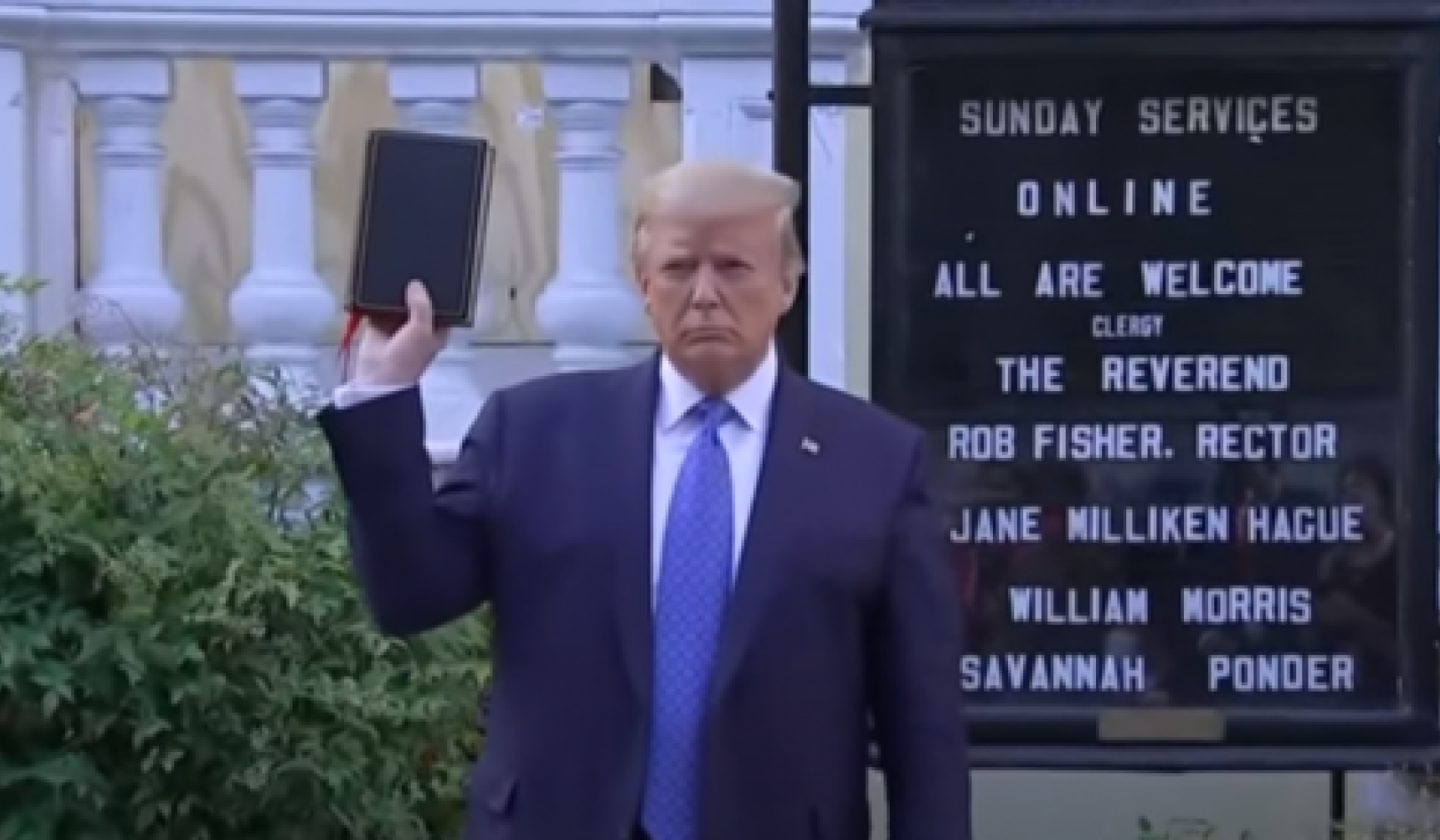
Politicians and business people are fond of making promises to plant thousands of trees to slow climate change. But who actually plants those trees, and who tends them as they grow?
The hard and dirty work of restoring ecosystems will be invaluable in coming decades, to soak up carbon dioxide in the atmosphere, ease the impact of storms and flooding and harbour embattled wildlife. But this work – where it currently exists – is carried out by people who are often poorly paid, or not compensated at all.
Most often, these aren’t recognised workers, but instead, volunteers. This is not only the case for conservation workers in rural areas of Madagascar and Cambodia, but also in cities where waste collectors and people who recycle electronic waste work in abject poverty.
The situation is more dire for those battling the natural disasters that are proliferating in the warming climate. The 2018 wildfire season in California was the deadliest in the state’s history, but much of the fire fighting relied on 2,000 prison inmates who earned just USD$1 a day.
During Australia’s “black summer” of 2019-20, Prime Minister Scott Morrison rejected calls for support payments to 195,000 volunteer firefighters because, in his words, “they want to be there”.
The UK is braced for a future in which flooding is more frequent and severe. But the Department for Environment, Food and Rural Affairs (DEFRA) relies heavily on volunteer labour to manage these floods when they occur, and that’s set to remain the case.
These workers lack the proper pay and protections of an organised workforce, yet their services are increasingly in demand. Collectively, they form an emerging “eco-precariat” that bears little resemblance to the labour movement that’s urgently needed to mitigate the climate and ecological crisis.
Precarity in the green economy
The modern “gig economy” sells independence to workers by allowing them to decide their own work hours. For taxi drivers or couriers, this may sound appealing, but in practice it can mean a precarious existence, trapped with a variable income and permanently on call in zero-hour contracts. Those with an uncertain immigration status can fall into forms of modern day slavery.
Our research studied labour practices in the green economy and in particular, the schemes in which people and organisations “buy” green services, like ecosystem conservation and tree planting.
These projects range from direct payments to governments for forest and mangrove protection, to carbon markets, in which credits are sold to finance conservation work. A growing number of corporations pay to offset the local environmental damage they cause this way - enabling them to neglect action to reduce their own greenhouse gas emissions. There’s even a smartphone app that will “plant a tree” at the touch of a button.
The idea of trees being planted at the touch of a screen sounds revolutionary. But this work tends to draw on a flexible labour pool – a sort of “green gig economy”. While private sector donations are funnelled through charities and NGOs overseeing the tree planting, the work itself is offered on a temporary basis, often to unpaid volunteers – including school children - who are deployed to plant and care for the trees.
Even as local people are enlisted to manage tree planting, they find their access to these areas restricted. In some cases, tree planting initiatives have uprooted communities and repossessed their land.
Essential workers
As the pandemic has shown, volunteers and community groups can hold the social fabric together in times of crisis. Whether it’s ordinary people creating medical equipment or caring for neighbours in quarantine, community action can save lives where years of austerity have starved emergency services of the necessary resources for dealing with disasters.
The same can be said of volunteer fire fighters and foresters, but cheering on their selflessness isn’t enough. We should recognise where labour arrangements have created precariou working condition, or enabled governments to shift their responsibilities onto the public.
Will volunteer fire fighters continue to go without compensation, even as their work becomes more dangerous in Australia’s increasingly fierce wildfire seasons? As governments consider how to revive the global economy after the COVID-19 pandemic, what legal protections can workers in new environmental projects depend on?
Now more than ever, it’s time for a frank discussion about what essential workers deserve in return for the invaluable work they do.![]()
About The Author
Sango Mahanty, Associate Professor, Crawford School of Public Policy, Australian National University and Benjamin Neimark, Senior Lecturer, Lancaster Environment Centre, Lancaster University
This article is republished from The Conversation under a Creative Commons license. Read the original article.
Related Books
Drawdown: The Most Comprehensive Plan Ever Proposed to Reverse Global Warming
by Paul Hawken and Tom Steyer In the face of widespread fear and apathy, an international coalition of researchers, professionals, and scientists have come together to offer a set of realistic and bold solutions to climate change. One hundred techniques and practices are described here—some are well known; some you may have never heard of. They range from clean energy to educating girls in lower-income countries to land use practices that pull carbon out of the air. The solutions exist, are economically viable, and communities throughout the world are currently enacting them with skill and determination. Available On Amazon
In the face of widespread fear and apathy, an international coalition of researchers, professionals, and scientists have come together to offer a set of realistic and bold solutions to climate change. One hundred techniques and practices are described here—some are well known; some you may have never heard of. They range from clean energy to educating girls in lower-income countries to land use practices that pull carbon out of the air. The solutions exist, are economically viable, and communities throughout the world are currently enacting them with skill and determination. Available On Amazon
Designing Climate Solutions: A Policy Guide for Low-Carbon Energy
by Hal Harvey, Robbie Orvis, Jeffrey Rissman With the effects of climate change already upon us, the need to cut global greenhouse gas emissions is nothing less than urgent. It’s a daunting challenge, but the technologies and strategies to meet it exist today. A small set of energy policies, designed and implemented well, can put us on the path to a low carbon future. Energy systems are large and complex, so energy policy must be focused and cost-effective. One-size-fits-all approaches simply won’t get the job done. Policymakers need a clear, comprehensive resource that outlines the energy policies that will have the biggest impact on our climate future, and describes how to design these policies well. Available On Amazon
With the effects of climate change already upon us, the need to cut global greenhouse gas emissions is nothing less than urgent. It’s a daunting challenge, but the technologies and strategies to meet it exist today. A small set of energy policies, designed and implemented well, can put us on the path to a low carbon future. Energy systems are large and complex, so energy policy must be focused and cost-effective. One-size-fits-all approaches simply won’t get the job done. Policymakers need a clear, comprehensive resource that outlines the energy policies that will have the biggest impact on our climate future, and describes how to design these policies well. Available On Amazon
This Changes Everything: Capitalism vs. The Climate
by Naomi Klein In This Changes Everything Naomi Klein argues that climate change isn’t just another issue to be neatly filed between taxes and health care. It’s an alarm that calls us to fix an economic system that is already failing us in many ways. Klein meticulously builds the case for how massively reducing our greenhouse emissions is our best chance to simultaneously reduce gaping inequalities, re-imagine our broken democracies, and rebuild our gutted local economies. She exposes the ideological desperation of the climate-change deniers, the messianic delusions of the would-be geoengineers, and the tragic defeatism of too many mainstream green initiatives. And she demonstrates precisely why the market has not—and cannot—fix the climate crisis but will instead make things worse, with ever more extreme and ecologically damaging extraction methods, accompanied by rampant disaster capitalism. Available On Amazon
In This Changes Everything Naomi Klein argues that climate change isn’t just another issue to be neatly filed between taxes and health care. It’s an alarm that calls us to fix an economic system that is already failing us in many ways. Klein meticulously builds the case for how massively reducing our greenhouse emissions is our best chance to simultaneously reduce gaping inequalities, re-imagine our broken democracies, and rebuild our gutted local economies. She exposes the ideological desperation of the climate-change deniers, the messianic delusions of the would-be geoengineers, and the tragic defeatism of too many mainstream green initiatives. And she demonstrates precisely why the market has not—and cannot—fix the climate crisis but will instead make things worse, with ever more extreme and ecologically damaging extraction methods, accompanied by rampant disaster capitalism. Available On Amazon
From The Publisher:
Purchases on Amazon go to defray the cost of bringing you InnerSelf.comelf.com, MightyNatural.com, and ClimateImpactNews.com at no cost and without advertisers that track your browsing habits. Even if you click on a link but don't buy these selected products, anything else you buy in that same visit on Amazon pays us a small commission. There is no additional cost to you, so please contribute to the effort. You can also use this link to use to Amazon at any time so you can help support our efforts.























